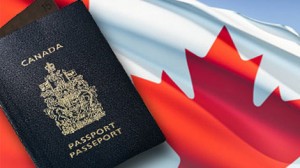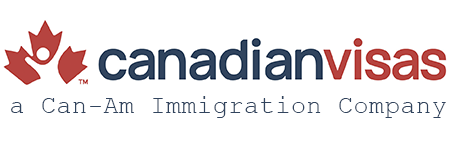
Jul 19, 2017 | Blog, Immigrate to Canada, Immigration, In the News, Permanent Residency, Skilled Workers, Spousal Sponsorship, Student Visas, Work Permits, Working In Canada
There are many reasons why a person would choose to immigrate to Canada. Some people immigrate in hopes of living a better life and/or to give their children opportunities that may not be so readily available in their country. Some people immigrate because they live in a war-torn country and they fear for their safety and that of their family. Others have family already in Canada and they want to be close to them. Some people choose to immigrate to Canada with their spouse or partner. This process is called Spousal Sponsorship. Then there are those who come to Canada to gain valuable education and/or work experience.
When it comes to quality of life, Canada has most other countries beat. In fact, Canada was ranked #2 best country in the world and #1 in education. Just to compare, the US was ranked 7th best country and 7th in education. Canadians are also “the 6th happiest people in the world, while Americans lag behind at 13th.” And there is a reason why Canadians are so happy. They have universal healthcare, for one. And, relative to other countries, Canada has easier access to education / cheaper degrees, higher press freedom, higher economic freedom, and better prison and justice systems. Canadians also live longer, work less hours, take more days off, and earn more money than Americans. Wow. It’s true. The American dream has moved north.
Let’s talk about immigration policy. The main issue to consider here is that Canadian provinces, unlike US states, have the ability to set immigration policy. Immigration in Canada is a joint effort between the federal and provincial governments. Canada has a program called the Provincial Nominee Program (PNP), which allows provinces to choose who they bring in based on economic need. The PNP helps individuals and their families to apply for permanent residence based on set criteria developed by the individual provinces. This is good both for the immigrant, whose application for PR is fast-tracked by a provincial nomination, and for the province, as they are able to bring in workers to meet labor market demand. While many of Canada’s immigration programs focus on skilled worker immigration, the PNP allows provinces to select workers in any occupation, including low or no-skilled occupations, to meet the labor demands of the province. So, if you find yourself to not be eligible for any other economic immigration program, you may find success in one of the Provincial Nominee Programs.
Overall, Canada’s immigration policy is far superior to that of the United States. Canada welcomes immigrants based on merit, which means that individuals who receive permanent residence in Canada are typically well educated and highly skilled. Immigration to Canada is also easier and faster than US immigration for many people. So, if you are a young professional looking for better opportunities in a beautiful country, Canada might just be the best place to go. Or if you are a businessman or woman looking to expand your business or set up a new business, Canada is a great place to do this. Whatever your reasons are, our team of qualified immigration consultants can assist you with all of your immigration needs. To start, take our free online assessment and find out if you qualify for one of Canada’s many immigration programs. If you have any immigration questions, contact us for a consultation today.

May 17, 2017 | Blog, Citizenship, Family Immigration, Featured, Immigrate to Canada, Immigration, In the News, Permanent Residency, Spousal Sponsorship, Student Visas, Temporary Foreign Workers, Tourist Visas, Work Permits, Working In Canada
According to a U.S. News study, Canada was ranked the second best country in the world in 2017. U.S. News partnered with Y&R’s BAV and Wharton to rank 80 countries, based on several attributes, divided into nine (9) sub-rankings:
- Adventure (friendly, fun, pleasant climate, scenic, and sexy);
- Citizenship (cares about human rights, cares about the environment, gender equality, progressive, religious freedom, respects property rights, trustworthy and well-distributed political power);
- Cultural Influence (culturally significant in terms of entertainment, fashionable, happy, has an influential culture, modern, prestigious and trendy);
- Entrepreneurship (connected to the rest of the world, educated population, entrepreneurial, innovative, provides easy access to capital, skilled labor force, technological expertise, transparent business practices, well-developed infrastructure and well-developed legal framework):
- Heritage (culturally accessible, has a rich history, has good food and many cultural attractions);
- Movers (different, distinctive, dynamic and unique):
- Open for Business (bureaucratic, cheap manufacturing costs, corrupt, favorable tax environment and transparent government practices);
- Power (a leader, economically influential, politically influential, strong international alliances and strong military alliances); and
- Quality of Life (affordable, a good job market, economically stable, family friendly, income equality, politically stable, safe, well-developed public education system and well-developed public health system).
Coming in as the second best country overall after Switzerland, Canada was also ranked #1 in the Quality of Life sub-category and 4th in the Citizenship sub-category. With a great public health care system and strong education system, as well as being a safe and family-friendly country; Canadians can boast a high quality of life. Canada is also known for being welcoming to immigrants and accepting of the diverse cultures of all their citizens. Canada is a land of opportunities for many foreign nationals as well as a safe haven for refugees. It might even be said that the American Dream is currently alive in Canada. In fact, the United States ranked 7th overall behind the United Kingdom, Germany, Japan, and Sweden (ranked 3rd, 4th, 5th, and 6th, respectively). Canada also ranked second best country overall in the same survey done in 2016 (behind Germany) as well as #1 in Quality of Life and #2 in Citizenship.
In addition to the above-mentioned categories, Canada also ranked number one for Best Countries for Education, well above the United States (which ranked 7th). Canada secured this #1 spot because of its highly developed public education system and quality universities. All in all we can say that Canada is a wonderful place to live. No matter where in the world you come from, what your beliefs are, and what your future goals look like, Canada and its occupants welcome you with open arms.
Are you interested in exploring this beautiful country? There are so many opportunities for individuals and families looking to study, work, and live in Canada. Our team of experienced immigration consultants is here to help you achieve your dream. Maybe you want to come for a visit to see the sights or to visit family. Perhaps you are looking for temporary status that allows you to work and /or study in Canada. Even if you are seeking a more long-term status, we can help. Canada places much value on the reunification of families. So if you have family members living in Canada, we can help with Family Sponsorship applications, including Spousal Sponsorship. From visitor visas to permanent residence to citizenship, our team can help you choose the best program to fit your needs. To get started, take our free online assessment or contact us today. We would gladly answer all of your questions and discuss your options for Canada immigration.

Feb 27, 2015 | Immigration
Can-Am Immigration is proud to announce the opening of our newest local office in Doha, Qatar. A new local office in Qatar will help us improve our services to our clients across the Gulf region. The office is operated by our authorized agent, Bassima Hijazi.
For all immigration inquiries from those located in the Gulf region, please contact Bassima Hijazi.
Doha, Qatar
Abdullah Bin Thani Bldg,
Doha,Qatar
Tel: +97455826184
Email: basma@theimmigrationteam.com
هل تامل بتأمين مستقبل أفضل لك ولعائلتك في كندا و الولايات المتحده
تعليم مجاني
معالجه طبيه مجانيه
سرعه المعاملات في خلال عام واحد فقط لكندا
برنامج الاستثمار في الولايات المتحده
Mr.Nir Rozenberg بإدارة السيد نير روزنبرج (CAN-AM) إن شركة كان اى م
المتأهل بعضويه كامله في مجال الهجره من المجلس التنظيمي لادارة الهجرة في كندا و أميركا تقدم لكم أفضل الخدمات الهجره من اي مكان في العالم حيث لديها مستشاريين مؤهلين للرد على جميع استفساراتكم و تسهيل معاملاتكم كما اننا نقيم تأهيلكم بأسرع وقت . لمزيد من المعلومات يمكنكم إرسال إيميل


Jul 14, 2014 | Immigration, In the News
According to a recent article in the Globe and Mail, the Conservative government has adopted new powers to share Canadian immigration files with foreign governments. This practice could have widespread consequences for individuals who wish to cross borders.
The changes alter the Citizenship Act to allow the government to draft regulations “providing for the disclosure of information for the purposes of national security, the defence of Canada or the conduct of international affairs,” including under international deals struck by Citizenship and Immigration Minister Chris Alexander.

The government will also be permitted to allow the “disclosure of information to verify the citizenship status or identity of any person” to enforce any Canadian law “or law of another country.”
The final regulations are still being developed, but critics warn the changes could lead to Canada sharing citizenship and immigration details with foreign countries, whether verified or not.
Bill C-24, wherein the powers are included, has drawn attention for giving the Minister the independent ability to strip Canadian citizenship in extreme cases, even from those born in the country.
Mr. Alexander’s office said the bill’s added information-sharing powers are “in line” with existing laws under the Immigration and Refugee Protection Act.
Lawyers interviewed by The Globe warned that potentially damaging personal information could move quite easily and without adequate oversight.
Immigration lawyer Barbara Jackman said federal officials could pass along citizenship applications and background checks, particularly in relation to Canadians involved in extremist movements abroad.

Jul 9, 2014 | Immigration
In an effort to attract more traffic from India, Canada will now be granting 10-year multiple entry visas to Indian nationals who have visited Canada or the United States at least once in the past 10 years.
Unlike the UK and the US, which have been tightening immigration norms for Indians, Canada will be moving towards a liberalized visa regime (in all categories including work, education, business and leisure), Chris Alexander, Canada’s minister for citizenship and immigration said in New Delhi on July 7.
The new policy, called CAN+, was unveiled by Alexander in the presence of representatives from India’s business, tourism and education sectors.

“I am very proud to launch the CAN+ program in India which will make it easier for Indians to visit Canada as tourists or to do business,” said Alexander.
“Successful applicants will be grouped for bulk processing and put through our visa office on a priority basis…It’s being launched as a permanent program after a successful pilot program,” he said.
“We do know it will make us more competitive compared to our partners. We want to offer the same service or better than our peer group.”
Indian nationals rank in the top 10 source countries of international visitors to Canada. In 2013, more than 130,000 visitor visas were issued to Indian citizens and nearly 14,000 Indian citizens were issued student permits.
Between January and June 2014, almost 95 percent of visitor visas issued to Indian nationals were multiple-entry visas, allowing travelers to visit Canada as many times as they want for up to 10 years.
Feb 6, 2014 | Family Immigration, Immigration, In the News
If you have not yet submitted your application for your Parent and Grandparent sponsorship, you will have to wait until next year. As of February 3, 2014, 5000 applications have been received.
Citizenship & Immigration Canada reopened the Parent and Grandparent Sponsorship Program on January 2, 2014. A maximum of 5000 applications is the limit; a way to reduce the backlog and improving processing times to reunite families faster. There are applicants who are still in process, and have been for over 7 years.
Those who managed to qualify to submit a complete application in the first couple of weeks will be considered eligible to sponsor and their application will proceed to the visa office for processing. Applications are considered to be ‘complete’ if all required documentation is provided, and all requirements of a sponsor are met.
Check to see if you met the requirements to sponsor your parent or grandparent to Canada
- You must be a Canadian citizen or permanent resident
- You must not be collecting social assistance, welfare (except disability),
- You must not be in default of a previous sponsorship,
- You must not be an undischarged bankrupt,
- You must meet the minimum necessary income requirement for the last three (3) taxation years,
- You must purchase private health insurance for your parent or grandparent.
The new Sponsorship of Parents and Grandparents requires the Sponsor to meet the minimum necessary income for three (3) years. You must have submitted your Notice of Assessment or Option C Printouts for the last most recent three (3) taxation years. For example: 2010, 2011, and 2012. There is no exception to this requirement and if any other documentation was provided, it is likely to not be considered. In this case, the application is deemed incomplete and will most likely be returned to the Sponsor.
Super Visa for Parents and Grandparents of Canadian citizens or Permanent Residents
Children or grandchildren of Canadian citizens and Permanent Residents may apply for a Super Visa. Similar to a Visitor (tourist) Visa, a Super Visa allows for the applicant to stay in Canada for up to two (2) years at a time. While a normal Visitor Visa allows for a maximum of six (6) months, the Super Visa provides a longer stay.
Canadian citizens and Permanent Residents must meet the minimum necessary income. However, they must only meet this requirement for one (1) year.







 Useful Resources for Canada
Useful Resources for Canada
 Useful Resources for U.S.
Useful Resources for U.S.
 Our Local Immigration Services
Our Local Immigration Services